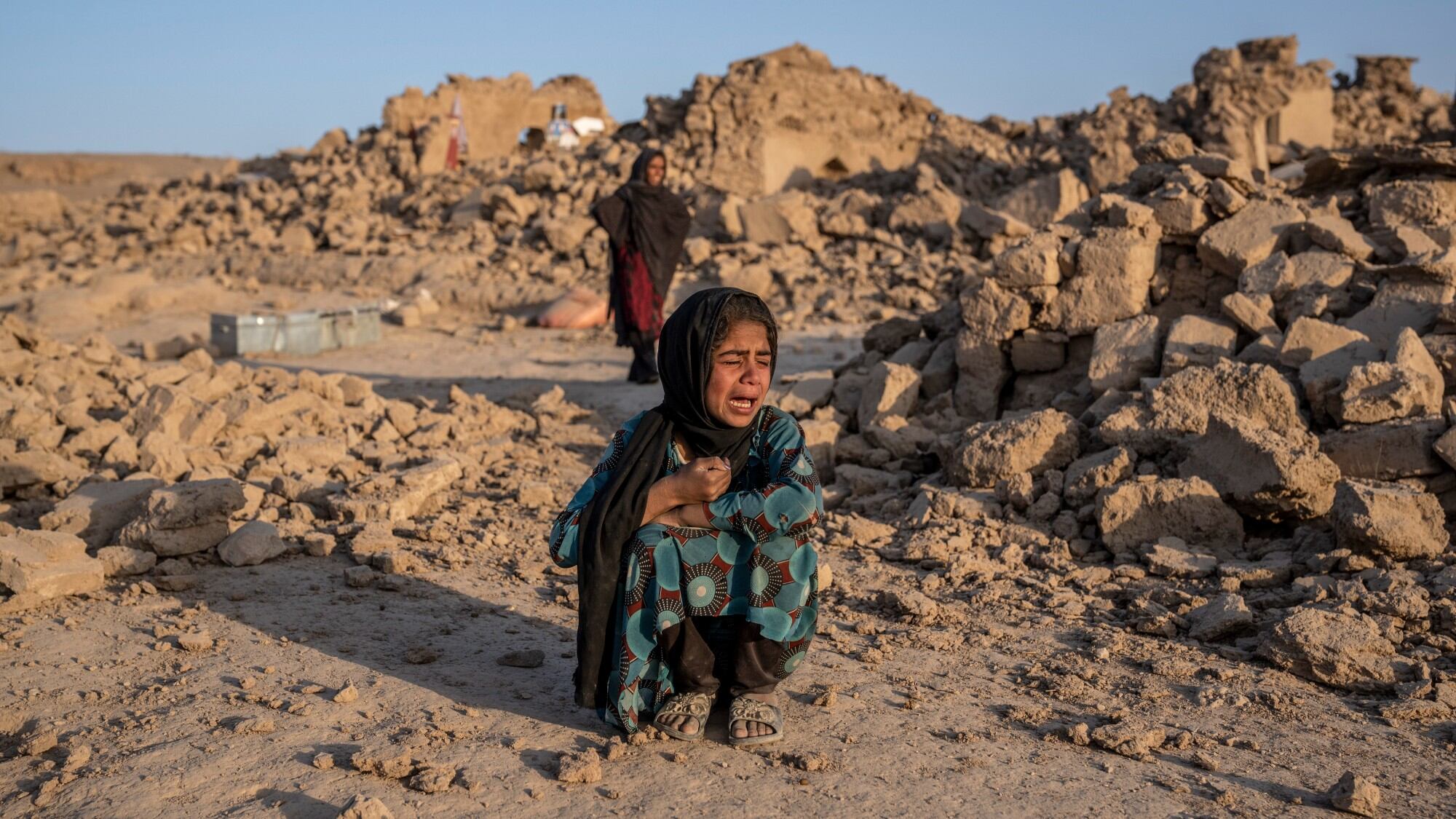By Riazat Butt
More than 90% of the people killed by a 6.3-magnitude earthquake in western Afghanistan last weekend were women and children, U.N. officials reported Thursday.
Taliban officials said Saturday's earthquake killed more than 2,000 people of all ages and genders across Herat province. The epicenter was in Zenda Jan district, where 1,294 people died, 1,688 were injured and every home was destroyed, according to U.N. figures.
Women and children were more likely to have been at home when the quake struck in the morning, said Siddig Ibrahim, the chief of the UNICEF field office in Herat, said. “When the first earthquake hit, people thought it was an explosion, and they ran into their homes,” he said.
Hundreds of people, mostly women, remain missing in Zenda Jan.
The Afghanistan representative for the United Nations Population Fund, Jaime Nadal, said there would have been no “gender dimension” to the death toll if the quake had happened at night.
“At that time of the day, men were out in the field,” Nadal told The Associated Press. “Many men migrate to Iran for work. The women were at home doing the chores and looking after the children. They found themselves trapped under the rubble. There was clearly a gender dimension.”
The initial quake, numerous aftershocks and a second 6.3-magnitude quake on Wednesday flattened entire villages, destroying hundreds of mud-brick homes that could not withstand such force. Schools, health clinics and other village facilities also collapsed.
The Norwegian Refugee Council described the devastation as enormous.
“Early reports from our teams are that many of those who lost their lives were small children who were crushed or suffocated after buildings collapsed on them,” the council said.
The maternity hospital in Herat province has cracks that make the structure unsafe. The U.N. Population Fund has provided tents so pregnant women have somewhere to stay and receive care, Nadal said.
Many people inside and outside the provincial capital are still sleeping outside, even as temperatures drop.
The disproportionate impact of the quake on women has left children without mothers, their primary caregivers, raising questions about who will raise them or how to reunite them with fathers who might be out of the province or Afghanistan.
Aid officials say orphanages are non-existent or rare, meaning children who have lost one or both parents were likely to be taken in by surviving relatives or community members.
Earthquakes are common in Afghanistan, where there are a number of fault lines and frequent movement among three nearby tectonic plates.
Women may be at risk of not getting information on earthquake preparedness because of Taliban edicts curtailing their mobility and rights, and restrictions imposed on female humanitarian workers, a U.N. report has warned.
Authorities have barred girls from school beyond sixth grade and stopped women from working at nongovernmental groups, although there are exceptions for some sectors like health care. The Taliban also say that women cannot travel long distances without male chaperones.
Aid agencies say their female Afghan staff members are “for now” working freely in Herat and reaching women and girls affected by the earthquake.
UNICEF has launched a $20 million appeal to help the estimate 13,000 children and families devastated by the earthquake.













